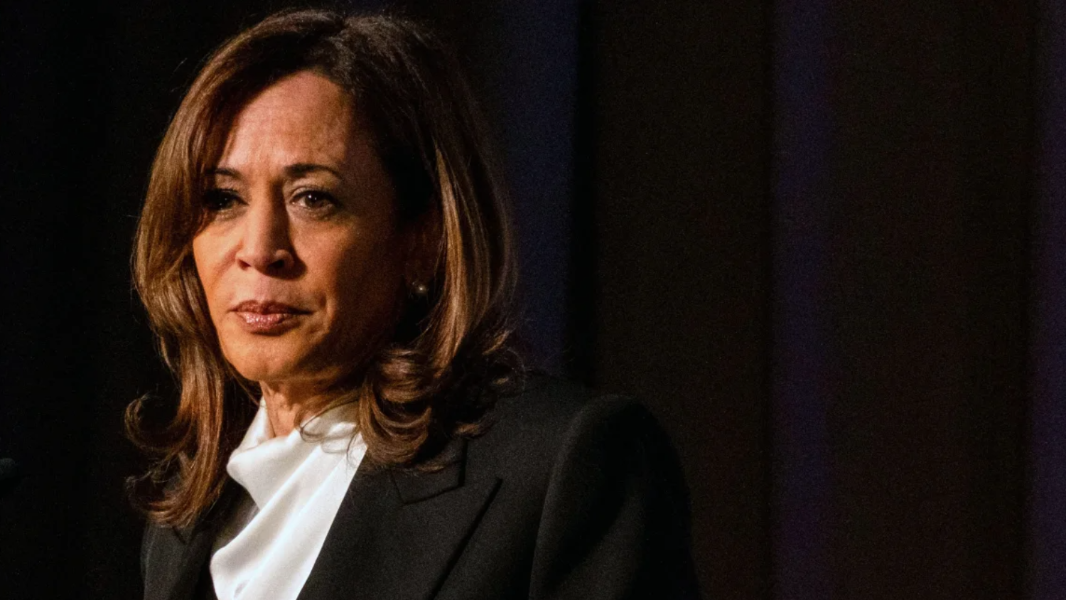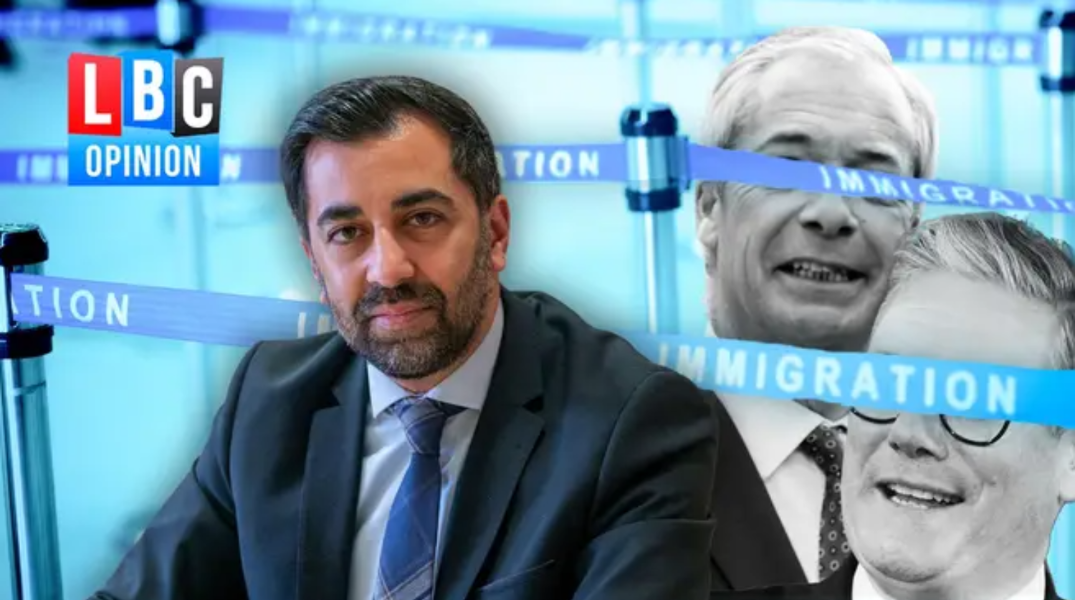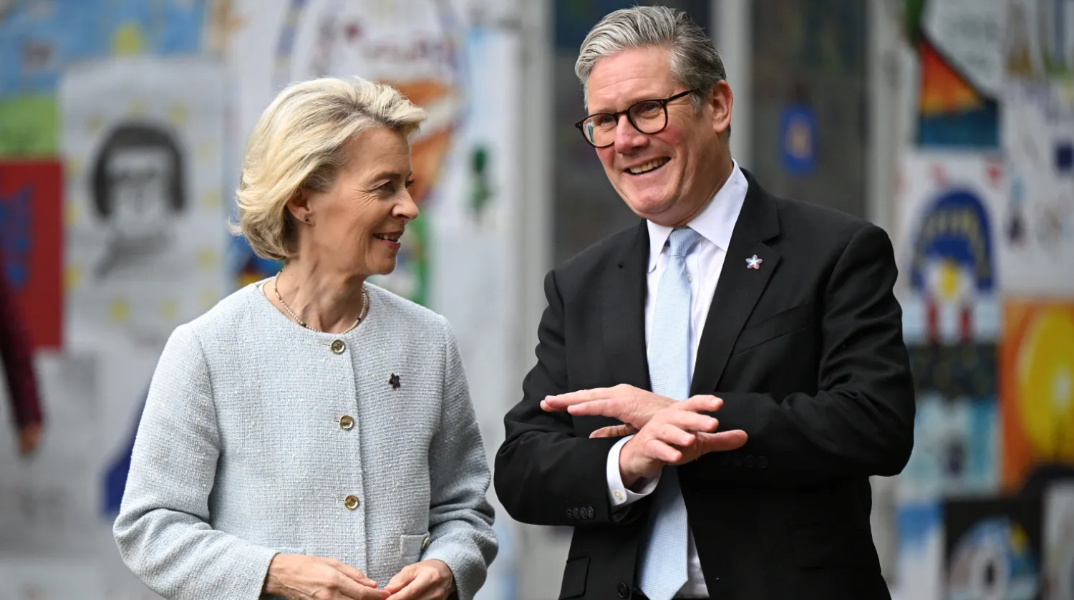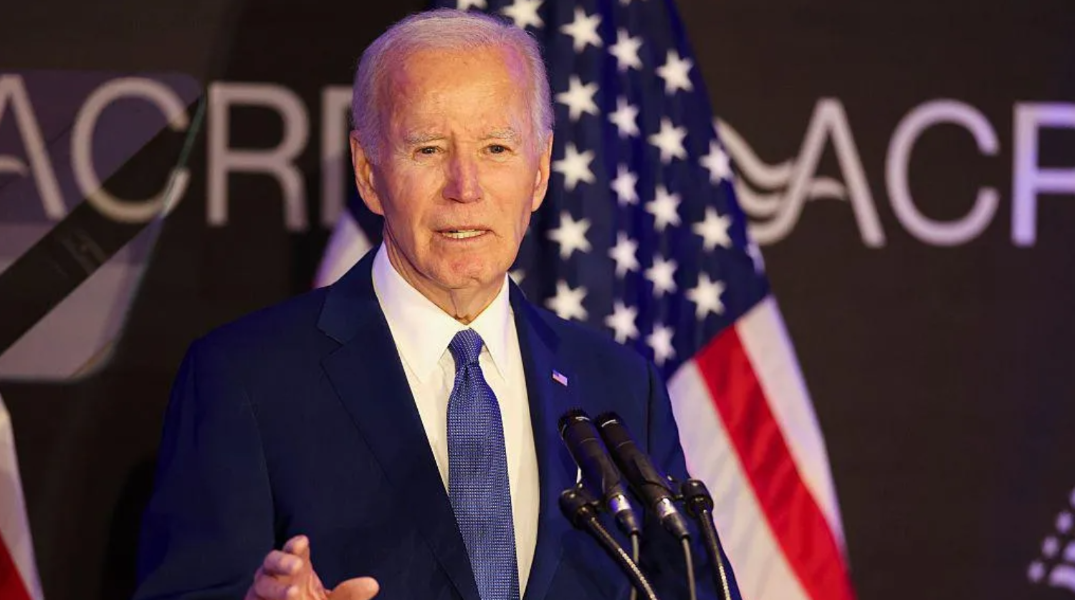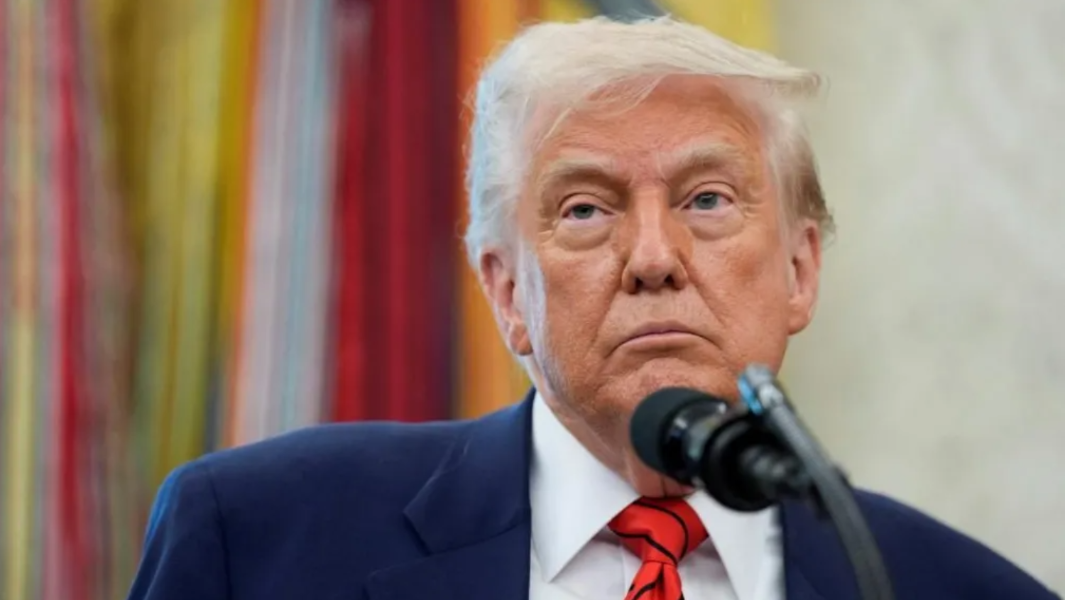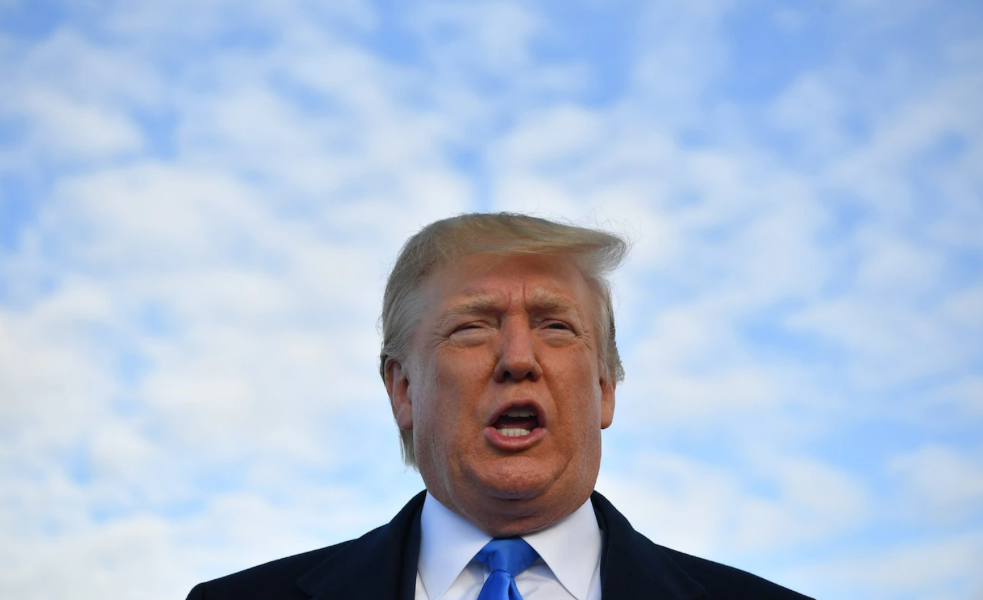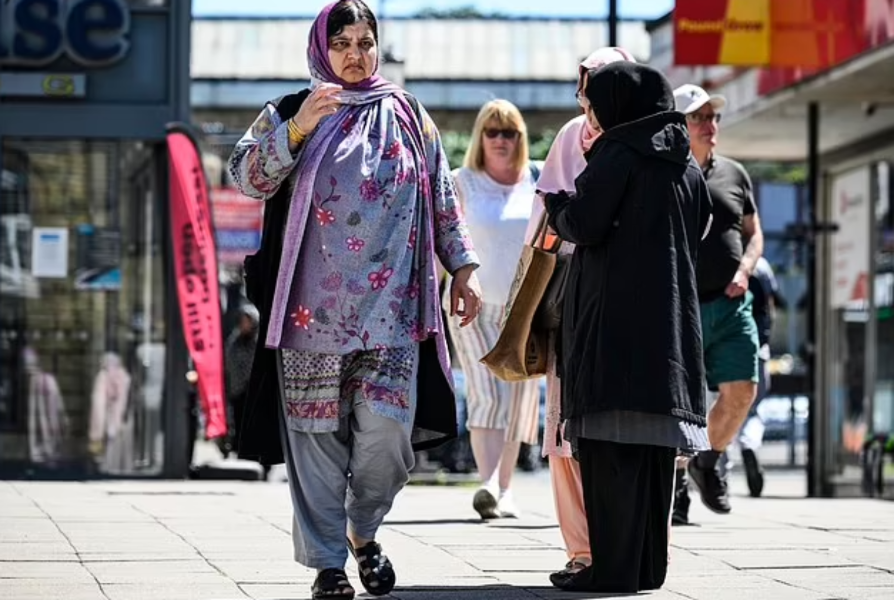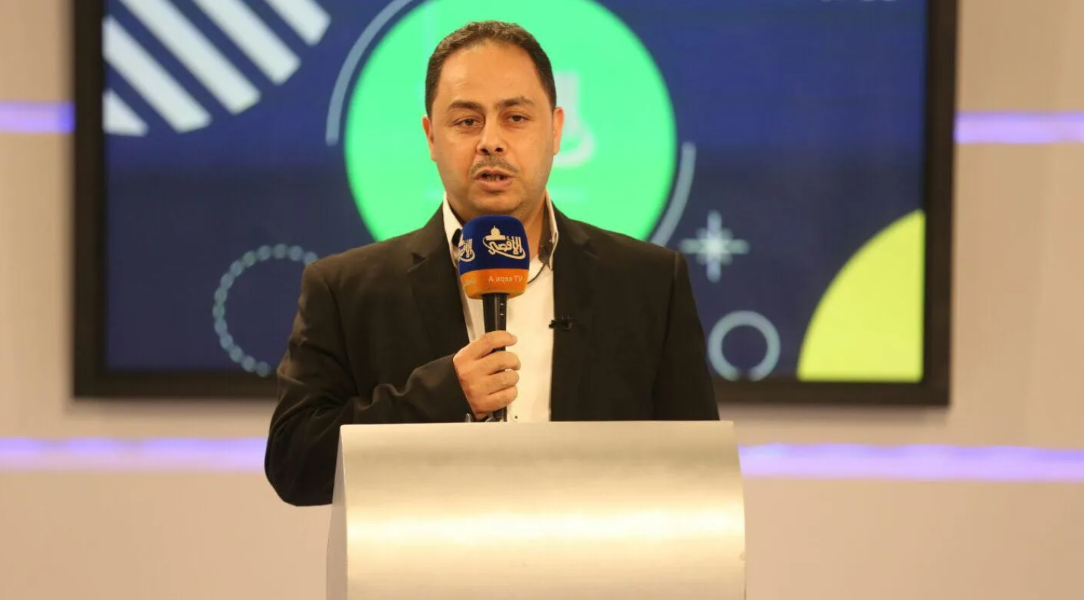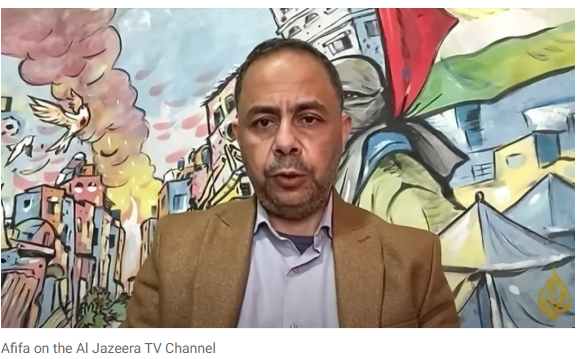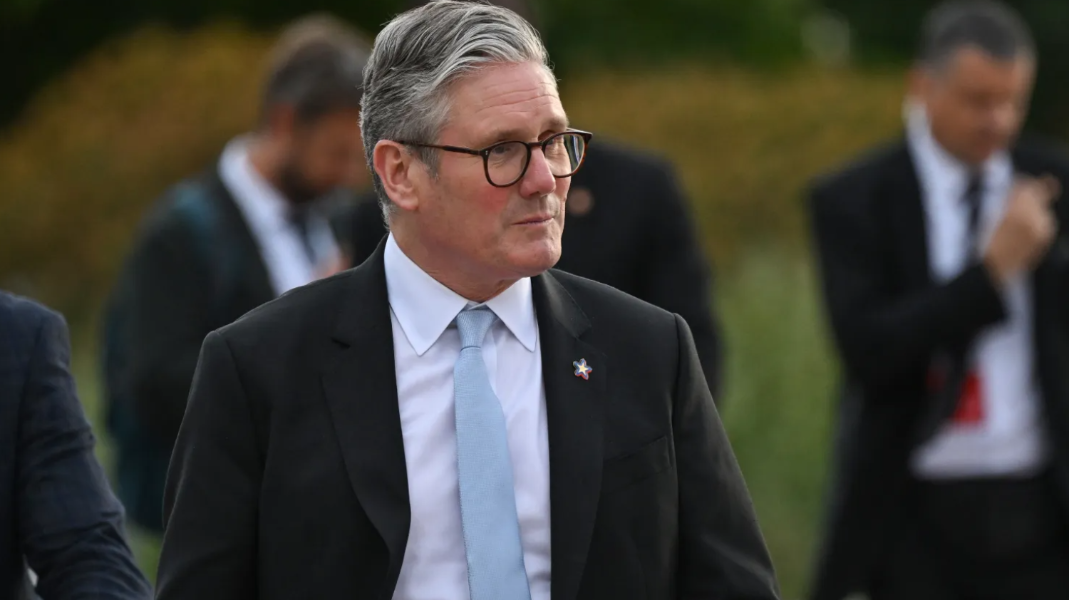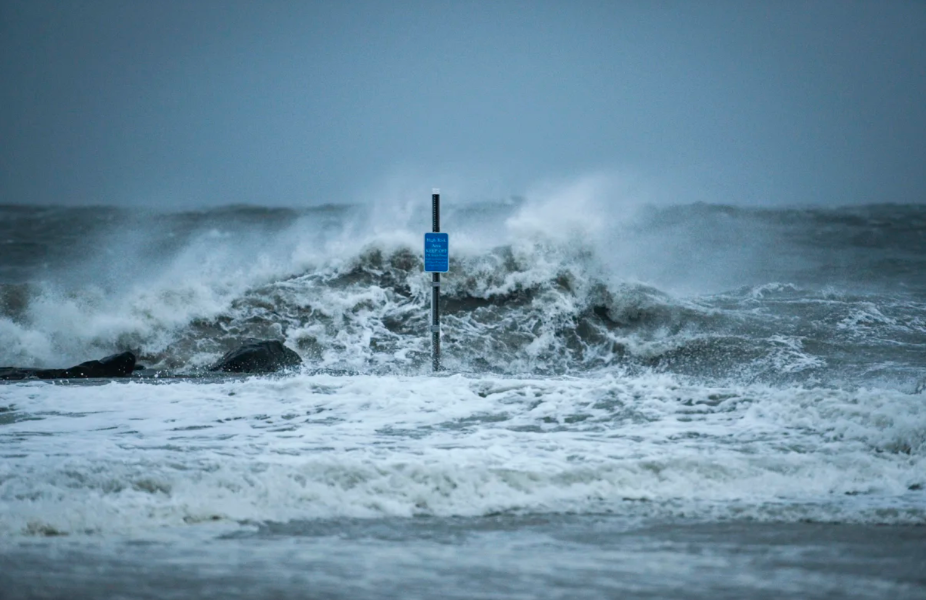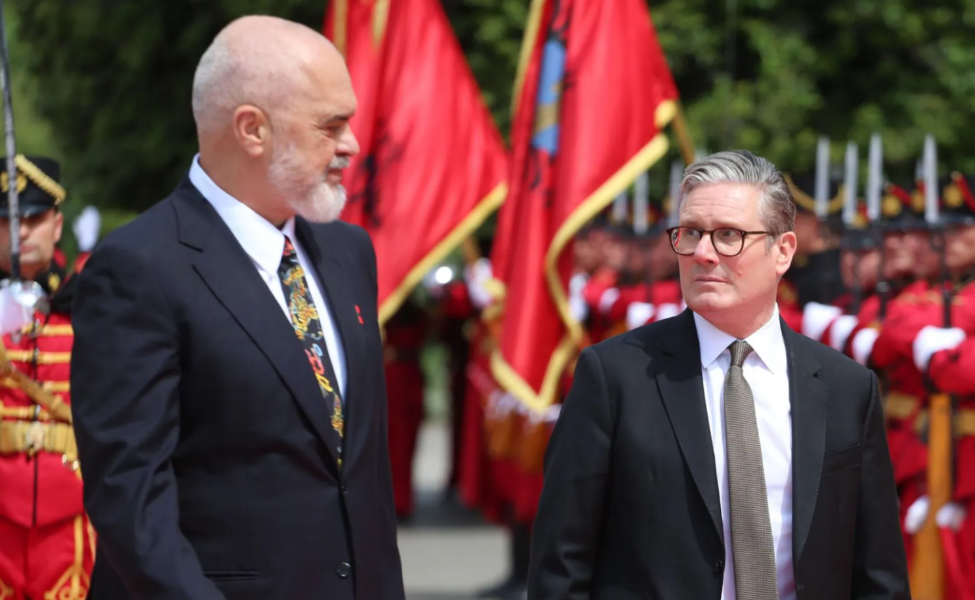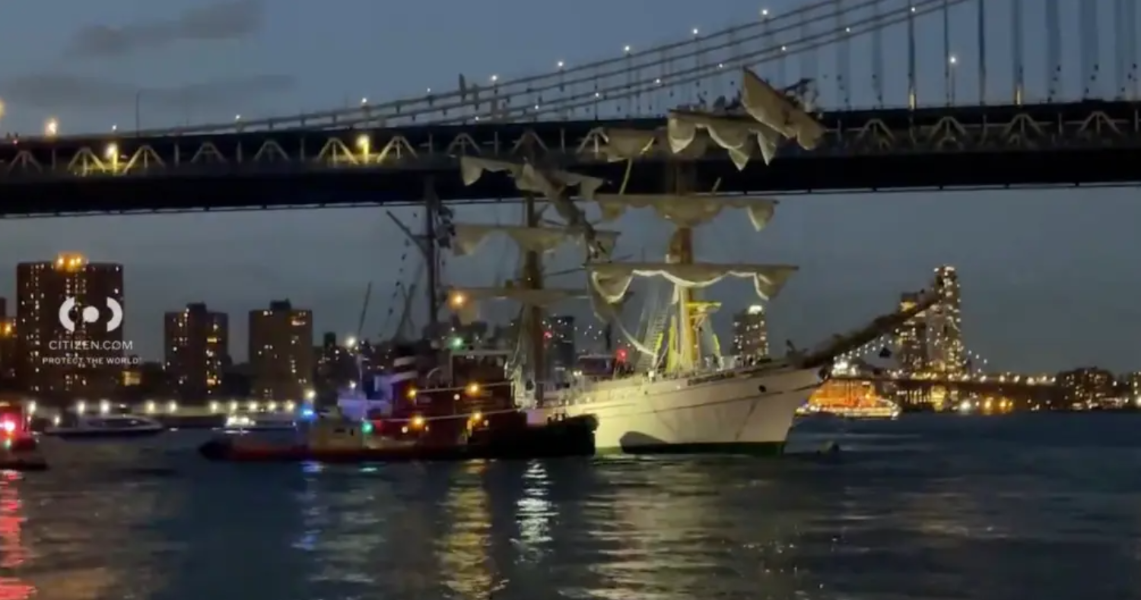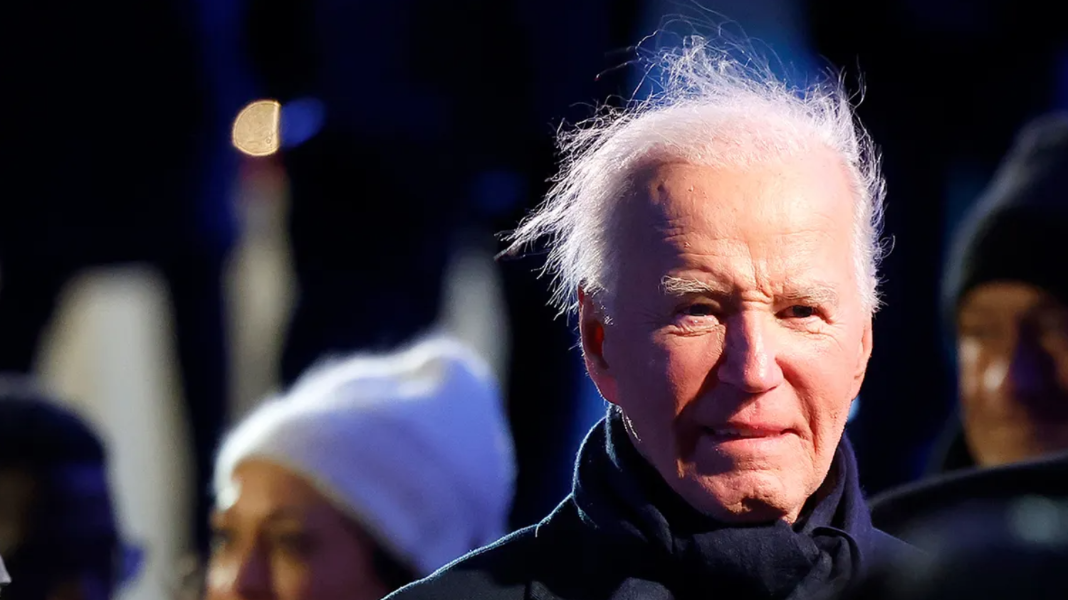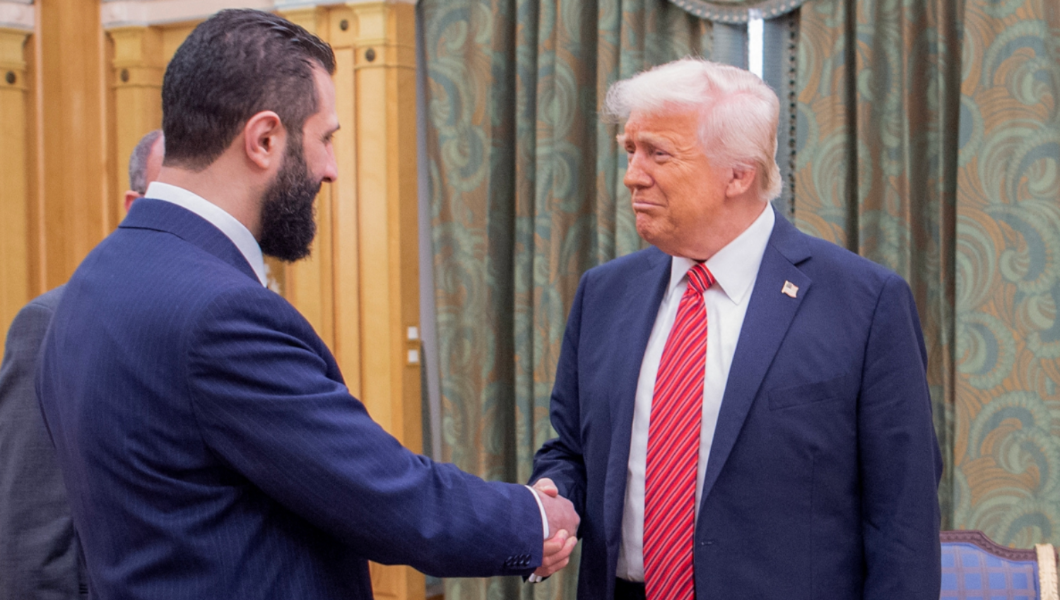-
Posts
10,743 -
Joined
-
Last visited
Content Type
Events
Forums
Downloads
Quizzes
Gallery
Blogs
Everything posted by Social Media
-
Elton John Slams Government as “Losers” Over AI Copyright Exemptions Sir Elton John has launched a scathing attack on the UK government, branding ministers “absolute losers” and accusing them of betrayal over controversial plans to exempt artificial intelligence firms from copyright protections. The music legend said he was “incredibly betrayed” by the government’s rejection of proposals that would have forced AI developers to disclose the copyrighted material used to train their systems. Speaking exclusively to Sunday with Laura Kuenssberg, the 78-year-old icon did not hold back, warning that the move amounts to “committing theft, thievery on a high scale” by allowing tech companies to exploit artists’ work without compensation. Sir Elton expressed deep concern about the impact on emerging creatives, stating, “The danger is that, for young artists, they haven’t got the resources ... to fight big tech [firms]. It’s criminal, in that I feel incredibly betrayed.” His outrage follows the government’s rejection of a House of Lords amendment to the Data (Use and Access) Bill. The Lords had voted by a wide margin to require transparency from AI companies regarding their use of creative works, but the House of Commons dismissed the changes. This legislative ping-pong has sparked tension across the creative industries, with artists and lawmakers in a standoff over how far copyright protections should extend in the age of generative AI. “The House of Lords did a vote, and it was more than two to one in our favour,” Sir Elton pointed out. “The government just looked at it as if to say, ‘Hmm, well the old people ... like me can afford it.’” He warned that failing to act would “rob young people of their legacy and their income,” and made it clear he was prepared to escalate the fight: “We’ll fight it all the way.” In a direct rebuke of political leaders, Sir Elton urged Prime Minister Sir Keir Starmer to “wise up” and took aim at Technology Secretary Peter Kyle, describing him bluntly as “a bit of a moron.” Playwright James Graham, who appeared alongside Sir Elton in the interview, echoed the concerns, saying, “Ministers do understand the value of creativity... but what’s frustrating is either the complacency or the willingness to let Silicon Valley tech bros get it all their own way.” Tom Kiehl, chief executive of UK Music, further warned the government was on the verge of making a grave error. He told the BBC the UK was “on the brink” of sacrificing its vibrant music industry to gain favor with U.S.-based tech giants. “The prime minister must not sell the next generation of singers, songwriters, musicians, and music creators down the river and allow all that talent to be crushed by letting soulless AI bots plunder their work,” Kiehl said. Sir Elton is among over 400 British musicians, writers, and artists who signed a letter to the prime minister, urging the government to protect creators in the face of fast-developing artificial intelligence. The signatories include Beatles legend Sir Paul McCartney, who previously warned the BBC that AI risks turning the creative landscape into a “Wild West” where copyright is ignored entirely. The ongoing battle over the Data Bill and AI transparency continues to stoke fierce debate, with the creative community now preparing to take its fight to the courts if necessary. As AI grows in influence, so too does the chorus of artists demanding a say in how their work is used—and protected—in the digital age. Adapted by ASEAN Now from BBC 2025-05-20
-
James Corden Reportedly Mulling Bid for London Mayor Role James Corden is reportedly contemplating a major shift in his career, with rumours circulating that the actor and television presenter is considering a bid to become Mayor of London. The surprising revelation allegedly emerged during a private conversation at the BAFTA Television Awards last weekend. According to reports, Corden shared his political curiosity with several high-profile figures during the event. He was introduced to the hosts of the Electoral Dysfunction podcast and is said to have revealed his interest in politics to Sky News political editor Beth Rigby, former Labour deputy leader Harriet Harman, and former Scottish Conservative leader Ruth Davidson. A source close to the matter remarked, “He clearly has a lot of respect for those who put themselves out there and run for office. And it was suggested that he should step into the political arena and stand in the future. There was talk that he should run for Mayor of London.” This speculation comes as the current Mayor of London, Sadiq Khan, recently secured a third term after first being elected in 2016. Khan is widely expected to step down when his current term concludes in 2028, which would open the door for a new Labour candidate to step forward. Corden, who is believed to be a Labour supporter, has previously made public comments on the party’s leadership and direction. Following Labour's defeat in the 2019 general election under Jeremy Corbyn, Corden expressed his dissatisfaction on social media, writing, “I can't shake the feeling that if Tom Watson had been leader of the Labour Party the outcome of this could've all been so different. Jeremy Corbyn has now lost two elections to opposition candidates who could've and should've been beaten.” While Corden has not officially confirmed any political ambitions, his comments at the BAFTAs and past engagement with political issues have sparked speculation about a potential future in public service. After spending several years in the United States hosting The Late Late Show, Corden and his wife Julia returned to the UK in 2023 and purchased a property worth £11.5 million in north-west London, further fuelling the idea that he may be laying down more permanent roots back home. Adapted by ASEAN Now from The Standard 2025-05-20
-
Kamala Harris at a Crossroads: Weighing the Governorship of California Against Her National Future As the political calendar inches toward July 21, Kamala Harris faces a critical juncture that could reshape both her career and California’s future. This date marks the end of the six-month period of Secret Service protection afforded to former vice presidents, a symbolic deadline that many close to her believe will coincide with a decision on her political trajectory. Though no official announcement has been made, speculation is mounting that Harris may soon launch a bid for the California governorship in 2026, with insiders suggesting an announcement could come as early as August or soon after Labor Day. Sources familiar with her deliberations describe a woman engaged in deep introspection and strategy, examining the prospect of governing her home state during a time of immense fiscal and political challenges. Private polling has shown Harris enjoying broad name recognition and significant support among California Democrats, bolstering confidence that she could enter the race as a frontrunner. “She’s trying to figure out what it means to be governor,” one confidant told CNN, pointing to the probing questions she’s been asking aides and policy experts as part of her characteristic lawyerly approach. Yet Harris’s path is far from clear. California’s top-two primary system complicates matters, with independents and Republicans also factoring into early polling. One rival shared data with CNN suggesting more likely primary voters felt Democrats would be “better off with another candidate for governor” than those who said Harris running would be “a good idea.” Harris has been hosting informal meetings at her Los Angeles home and sending texts to longtime aides linking to articles on state issues. She’s wrestling with the realities of taking over a state facing a projected $12 billion budget deficit, looming Medicaid cuts, and the need to regulate emerging technologies like artificial intelligence. Her potential gubernatorial tenure would mean overseeing tough compromises with a fractious legislature, far removed from the glamour of high-profile national events. “President was going to be a walk in the park?” she reportedly quipped in conversations where concerns about the grueling nature of the job were raised. Still, some close to her believe Harris is increasingly persuaded that the enormity of California’s challenges makes the role a meaningful next step, not a political consolation prize. “I have no doubt that if she chose to run for governor, she would be an exceptional servant of that state,” said longtime adviser Minyon Moore. Despite the growing momentum, the race remains frozen in anticipation of Harris’s move. “The race is frozen until she makes a decision,” said one senior Democratic figure in California. “The ball’s in her court.” Multiple declared candidates, including Antonio Villaraigosa and Xavier Becerra, have signaled they won’t step aside. “I’m ready for Kamala,” said Villaraigosa. “I don’t believe she’s prepared to get her hands dirty.” Becerra added, “Competition is good. I think everyone should have the opportunity to make a good decision. But I made my decision and I’m in until November 2026.” Other contenders could further complicate the field. Rick Caruso, the billionaire developer and former Republican, is reportedly weighing a self-funded run, and Trump ally Ric Grenell could enter the race with backing from figures like Elon Musk — a scenario Harris’s advisers believe could allow her to frame the campaign as a stand against MAGA extremism. Though friends say the grief of her failed 2024 presidential campaign has finally left her voice, she remains torn between her rising political capital and the stark realities of state leadership. She is also preoccupied with finishing a forthcoming book, weighing how much to reveal about her time with Joe Biden and their campaign. His recent remark on The View, that he “wasn’t surprised” she lost and still believes he would have won, reportedly reignited anxieties over how to address their complicated dynamic. Gavin Newsom, now in his final term, recently presented revised budget estimates that painted a sobering picture of the state’s finances. “We don’t live in Plato’s Republic,” Newsom said bluntly. Lorena Gonzalez, president of the California Labor Federation, echoed the urgency: “There’s some serious issues that California faces and will continue to face in the future, and that is being driven home more than ever because of the time we’re in.” For Harris, the calculus includes more than just political ambition. Her recent actions — from strategic outreach to media figures and aspiring female candidates, to a continued presence in Democratic infrastructure discussions — show a leader contemplating not just her next role, but her broader legacy. Yet as Jerry Brown, a veteran of California politics, noted, “A politician is somebody who runs for office. If they’re out of office they’ll be looking for ways to get back into office. It is the psychology that I followed. And it’s what guided me for 50 years in politics.” With the clock ticking and a crowded field waiting, Kamala Harris must now decide whether to return to the political arena not as a national candidate, but as California’s next executive — a decision that will inevitably shape her legacy, whether in Sacramento or beyond. Adapted by ASEAN Now from CNN 2025-05-20
-
Hamas Plotted October 7 Attack to Derail Israel-Saudi Peace Talks, Documents Show Newly uncovered documents reveal that Hamas orchestrated its devastating October 7, 2023, assault on Israel with the intention of sabotaging ongoing peace talks between Israel and Saudi Arabia. These revelations, based on minutes from a high-level meeting of Hamas’s political bureau in Gaza, suggest that the militant group viewed the potential normalization of relations between the two countries as a dire threat to the Palestinian cause. The Israeli military discovered the documents hidden in a tunnel beneath Gaza. According to the minutes from a meeting held on October 2, just five days before the attack, Hamas’s Gaza leader Yahya Sinwar urged fellow militants to carry out an “extraordinary act” to prevent what he described as rapidly advancing normalization talks. The Wall Street Journal reviewed the document, in which Sinwar warned that the agreement between Saudi Arabia and what he called the “Zionist entity” was gaining significant momentum. “There is no doubt that the Saudi-Zionist normalization agreement is progressing significantly,” Sinwar is quoted as saying. He added that such a deal would “open the door for the majority of Arab and Islamic countries to follow the same path.” For Sinwar and other Hamas leaders, who have long advocated for the destruction of Israel and the creation of a Palestinian state encompassing all of historical Palestine, normalization represented a mortal blow to their objectives. The document quotes Sinwar declaring it was time to launch an attack that had been in the planning stages for two years. “The goal,” he said, “is to bring about a major move or a strategic shift in the paths and balances of the region with regard to the Palestinian cause.” He expressed confidence that other members of the Iran-backed “axis of resistance,” which includes Hezbollah and other militant factions, would support the effort. The strategy appeared to achieve its short-term objective, though at a devastating human cost. The Hamas-led incursion resulted in the deaths of nearly 1,200 Israelis and the kidnapping, murder and torture of many others right up to this day. In response, Israel launched a large-scale military campaign aimed at dismantling Hamas, resulting in the deaths of more than 53,000 Palestinians, according to Gaza’s health ministry that does not distinguish between civilians and Hamas terrorists, and widespread destruction across the territory. The violence triggered a wave of outrage across the Arab world, freezing progress on the normalization initiative. President Trump, during a visit to Riyadh, acknowledged the delay but maintained optimism, stating, “You’ll do it in your own time.” Additional documents reviewed by the Journal confirm growing anxiety within Hamas about the state of U.S.-brokered negotiations between Israel and Saudi Arabia. Arab intelligence officials familiar with Hamas's internal operations said the documents appear to be authentic. One report from September 2023 advised intensifying violence in the West Bank and Jerusalem to further obstruct normalization. It expressed skepticism toward Saudi assurances about defending Palestinian interests, dismissing them as “weak and limited steps to neutralize” Hamas. According to the documents and corroborating sources, another significant meeting took place in Beirut on October 2, involving Hamas and Iranian security officials. Senior Hamas and Hezbollah members confirmed that Iran approved the attack and had been consulting with Hamas on military strategies since 2021. Intelligence officials say Iran provided not only weapons and funding but also military training in the lead-up to the October 7 attack. Many of Hamas’s top figures involved in planning the assault are now dead. Israeli forces killed Yahya Sinwar in Gaza in October, along with Marwan Issa and other high-ranking officials present at the pivotal October 2 meeting. Ismail Haniyeh, another key leader of the movement, was also killed in exile. On Tuesday, an Israeli airstrike targeted Sinwar’s brother, Mohammed, who oversaw Hamas's military operations, it has since been confirmed he was also killed. Among the additional internal files recovered was an August 2022 military briefing marked “secret,” which stated, “It has become the duty of the movement to reposition itself to … preserve the survival of the Palestinian cause in the face of the broad wave of normalization by Arab countries, which aims primarily to liquidate the Palestinian cause.” The document emphasized strengthening alliances with Hezbollah and other militant groups. Another document dating from October 2022 was a job posting by Hamas’s Department of Arab and Islamic Cooperation, seeking a candidate to “market the movement’s programs to confront normalization.” The position called for a university graduate skilled in negotiation and outreach, with the aim of rallying grassroots Arab organizations to boycott pro-normalization entities. Though normalization between Israel and several Arab states has already occurred under the Abraham Accords, a deal with Saudi Arabia has been viewed as the most transformative. For Hamas, it was also the most threatening. Their deadly campaign on October 7 was not only an act of war—it was, by their own documents, a last-ditch effort to prevent the geopolitical landscape from shifting irreversibly against their cause. Adapted by ASEAN Now from Wall Street Journal 2025-05-20
-
Labour’s Rightward Shift on Immigration Risks Empowering Farage, Not Defeating Him Labour’s recent rhetoric on immigration signals a troubling turn in British politics. In his latest intervention, Sir Keir Starmer warned that the UK could become an “island of strangers,” a phrase that, intentionally or not, recalls the divisive undertones of Enoch Powell’s notorious “Rivers of Blood” speech. By framing immigration in these terms, Starmer is not just pandering to public anxieties — he is echoing a narrative long promoted by the far-right, now epitomized by Nigel Farage and his Reform Party. Powell’s 1968 speech cast immigration as an existential threat to British identity, fuelling decades of hostile policies and racial division. Starmer’s use of “strangers” may be less explicit, but it carries the same implication: that foreign customs, languages, and loyalties dilute the nation’s cohesion. It’s a dog-whistle to those who blame migrants for overwhelmed services, economic hardship, and social change — a sentiment that ignores Britain’s reliance on migration for its prosperity. Nobody argues for unregulated borders. But there is a world of difference between managed migration and the kind of punitive restrictions Labour now seems to champion. In England’s NHS, around 35% of doctors are from overseas. In Scotland alone, more than 10,000 social care roles are filled by skilled migrants. These workers aren’t burdens — they are lifelines. They keep our health system running, support vulnerable citizens, and plug critical gaps in hospitality, construction, logistics, and tech. Labour’s plans to restrict student visas, eliminate social care routes, and tighten skilled migration betray a basic misunderstanding: Britain needs immigration to function. The Office for National Statistics projects that without continued migration, the UK’s working-age population will decline by more than four million by 2030. Across Europe, the shortfall in labor is expected to reach 45 million by 2050. Refusing to acknowledge this reality in favor of political point-scoring invites slower growth, wage inflation, and national decline. The proposal to eliminate social-care visas is particularly cruel. Donald MacAskill, director of Scottish Care, has rightly warned that this move would leave thousands of dementia patients and elderly citizens without adequate support. Stripping away a lifeline for dedicated carers in an ageing nation does not solve a political dilemma — it creates a social crisis. Labour’s belief that it can win over Reform Party voters by adopting similar policies and rhetoric is fundamentally flawed. They cannot out-Farage Farage. By mimicking the language of exclusion and suspicion, Labour risks validating and strengthening the very forces it hopes to neutralize. Instead of retreating into reactionary territory, Labour — and all progressive parties — must articulate a positive vision for immigration. This means recognising the value of attracting talented, hard-working individuals from around the world. Imagine a country that welcomes nurses from Southeast Asia, engineers from Eastern Europe, and tech pioneers from the Indian subcontinent — and then invests in their success through robust language training and professional development. Scottish Labour leader Anas Sarwar’s recent call to “cut immigration across the board” is both disappointing and politically tone-deaf. Under today’s rules, neither his father nor mine would have been allowed to enter the UK. Yet both built successful lives here and contributed immensely to their communities and the economy. Sarwar’s pledge to stand up to Starmer now rings hollow as he stays silent while Labour backtracks on support for WASPI women, cuts winter fuel payments, and slashes disability benefits. As the proud grandson of immigrants, I know the sacrifices and dreams that shaped our families. My grandparents toiled in factories and restaurants so their children and grandchildren could thrive. At one point, Britain was rightly proud to have a Muslim Mayor of London, a Hindu Prime Minister, and a Scottish-Pakistani First Minister — a powerful symbol of multicultural success, not failure. I commend Scotland’s current First Minister for taking a firm stand against the vile rhetoric of Reform and upholding values of inclusion and dignity. If more leaders had such courage, Britain might not be staring down the possibility of Nigel Farage holding the keys to No. 10. We need principled leadership now more than ever — not political expediency dressed as pragmatism. — Humza Yousaf is a Scottish politician who served as First Minister of Scotland and Leader of the Scottish National Party. Adapted by ASEAN Now from LBC News 2025-05-20
-
Starmer’s Brexit Reset: A Strategic Shift or a Sacrifice? Prime Minister Keir Starmer has unveiled a landmark reset in UK-EU relations with a new post-Brexit deal aimed at reestablishing close cooperation with Britain’s largest trading partner. At a press conference in London, Starmer described the agreement as a “strong package” that promises tangible benefits for both sides. “We are agreeing a new strategic partnership fit for our times, providing real, tangible benefits on security, irregular migration, energy prices, agri-food, trade and more, bringing down bills, creating jobs and protecting our borders,” he said. Starmer emphasized that the breakthrough was the result of “hard work together at every level,” identifying common ground without compromising the UK's sovereignty. One of the most talked-about aspects of the new agreement is a concession to allow young Europeans greater access to the UK for work, study, and travel. Although not officially named a youth mobility scheme, both parties have agreed to work toward a “balanced youth experience scheme” under mutually agreed terms. The deal also includes a return pathway for European au pairs, who were excluded after Brexit. The UK remains firm on the need for an annual cap, although the agreement itself vaguely notes that numbers must be “acceptable to both sides.” The deal, however, has sparked controversy, particularly in Scotland and among the UK fishing community. Angus Robertson, Scotland’s constitution secretary, criticized the UK government for sidelining devolved administrations in the negotiations. “Scottish government received no documentation or draft proposals in advance. I asked UK minister last week for this. Nothing received. Reset?” he posted on social media. The most contentious issue remains fishing. The 12-year extension of EU catch quotas in UK waters has been described by Elspeth Macdonald, chief executive of the Scottish Fishermen’s Federation, as a “total capitulation to the EU.” Representing more than 400 fishing boats, Macdonald argued that this long-term agreement strips Scottish fishers of any leverage they might have had through annual negotiations. “It would be a terrible deal for Scottish fishermen,” she said in an interview on BBC’s Good Morning Scotland. At a Downing Street reception with business leaders, Chancellor Rachel Reeves underscored the economic necessity of rebuilding ties with Europe. “For too long, it’s been too difficult to do trade with the UK’s largest trading partner,” she said. “We can see all over the last months how much the world is changing, but the British government isn’t just going to stand by and watch that change. We ought to shape it in our national interest.” Despite strong business support, political criticism has mounted. Conservative peer Lord Rose of Monewden told Times Radio that the agreement is essential for repositioning the UK amid global shifts. “It has to be a win,” he said. “It’s five years since we did the deal in 2020. But in reality, look what has happened in the world since then… And we’ve been ignoring the 250 million people across the channel, 20 miles away. We should be talking about opportunity, opportunity, opportunity.” But not everyone sees opportunity. Richard Tice, deputy leader of Reform, denounced the 12-year fishing concession as a complete surrender. “Starmer has surrendered — lock, stock and barrel. He’s waved the white flag and kissed goodbye to UK fishing,” he said. Reform leader Nigel Farage echoed the sentiment, saying this would “be the end of the fishing industry.” Conservatives have also raised alarms over what they call a return to rule-taking from Brussels. Tory leader Kemi Badenoch called the 12-year access “three times longer than the government wanted,” warning that the lack of firm limits on youth mobility could reignite fears of renewed free movement. Shadow environment secretary Victoria Atkins added, “The fishing industry had been sacrificed to get a deal over the line, calling it far worse than we anticipated.” In response, Business Secretary Jonathan Reynolds defended the fishing terms. He emphasized that market access, especially to the EU, is essential for the sector. “It’s not just about what you catch in the UK, it’s who you’re going to sell it to… 70 per cent of our exports are to the EU,” he said. “That market access is fundamental to the prosperity of that industry, so it’s not a trade-off in that regard.” As the dust settles, the new UK-EU deal is already proving to be a divisive milestone — hailed by some as a pragmatic reengagement with Europe, and condemned by others as a betrayal of Brexit promises. Adapted by ASEAN Now from The Times 2025-05-20
-
The United Kingdom has experienced a significant drop in its standing on LGBT+ rights in Europe, hitting its lowest rank ever in 2025, according to the Rainbow Map and Index released annually by advocacy group ILGA-Europe. Once a consistent leader in equality for LGBT+ people, the UK has now fallen six places to 22nd out of 49 countries, a stark contrast to its former top-ranking status between 2011 and 2015. The plunge in the rankings follows a recent Supreme Court ruling that defined a woman strictly by biological sex under the Equality Act. As a result, ILGA-Europe deducted all points previously awarded to the UK for legal gender recognition, stating that such recognition “is no longer fully effective.” The group explained, “Legal gender recognition should enable a person to legally function and be recognised in their affirmed gender in all areas of life; this is no longer the case in the UK. The ruling, along with interim guidance from the Equality and Human Rights Commission (EHRC), means that individuals with a gender recognition certificate are not fully recognised as their affirmed gender in important legal contexts. It is, in fact, impossible for a trans person to be fully legally recognised in their gender identity within the legal framework created by the judgment and interim update.” The UK’s overall score now stands at 45.65 per cent, above the European average of 41.85 per cent but below the EU member average of 51.13 per cent. Malta leads the 2025 rankings with an impressive 89 per cent, closely followed by Belgium, Iceland, Denmark, and Spain. At the other end of the spectrum, Russia came in last with just 2 per cent, followed by Azerbaijan at 2.25 per cent and Turkey at 4.75 per cent. Beyond legal gender recognition, the UK received low marks in several other categories. These include rights for intersex individuals, government guidance advising schools in England against teaching gender identity, and a proposed ban on sex education for children under the age of nine. The country also scored poorly—just 16.67 per cent—for its treatment of LGBT+ asylum seekers, who often face homelessness, abuse, and other hardships upon arrival. Stonewall, a leading LGBT+ rights organisation, described the report as a “wake-up call” for the UK government. “The UK has reached an all-time low position of 22 out of 49. Warm words and empty promises from the government won't restore the UK’s global reputation on LGBTQ+ rights. Action will,” a spokesperson said. Jo Maugham, executive director of the Good Law Project, echoed these concerns and pointed to the broader implications. “Only ten years ago, we were the best in the world in the annual LGBTI Rights Ranking,” he said. “We’re now 22nd and making all the wrong headlines, alongside Hungary and Georgia, for the biggest decline in protections. This is not just an embarrassment abroad – it’s also a tragedy at home for tens of thousands of people struggling to live lives of quiet dignity.” The UK’s dramatic fall in the rankings mirrors similar declines in Hungary and Georgia. Both countries have removed references to “gender identity and expression” from their legislation. Hungary has additionally moved to criminalise participants in Pride events, while Georgia has taken steps to restrict similar expressions of identity. Despite the sharp criticism and declining scores, a UK government spokesperson defended the country's record. “The UK has long championed the rights of LGBT+ people at home and abroad. We proudly uphold a clear and robust expansive legislative framework. We are working to advance the rights afforded to LGBT+ people, including bringing forward legislation to finally ban conversion practices and strengthening protections against hate crime.” Nonetheless, critics argue that such statements are no substitute for meaningful policy changes, warning that without urgent reforms, the UK risks continuing its downward trajectory on the international stage when it comes to equality and human rights. Adapted by ASEAN Now from The Independent 2025-05-20
-
Please continue here: //closed//
-
Joe Biden Faces Aggressive Cancer Battle Amid Public and Political Support Former U.S. President Joe Biden has been diagnosed with an aggressive form of prostate cancer that has already metastasized to his bones, according to a statement released by his office on Sunday. The 82-year-old received the diagnosis on Friday after consulting a doctor the previous week due to ongoing urinary symptoms. Medical evaluations revealed a Gleason score of 9 out of 10, a scale that measures the aggressiveness of prostate cancer. According to Cancer Research UK, such a high score indicates a “high-grade” cancer that is likely to spread quickly. Despite the severity, Biden’s team noted that the cancer is hormone-sensitive, which typically means the condition is more responsive to certain treatments and may be managed effectively. Biden and his family are reportedly exploring treatment options. This news comes less than a year after he withdrew from the 2024 presidential race amid growing concerns about his age and overall health. Biden had been vying for re-election when his campaign was hampered by a widely criticized performance during a televised debate in June against current President Donald Trump. His vice president, Kamala Harris, ultimately took his place as the Democratic nominee. The announcement sparked a wave of reactions from across the political spectrum. President Donald Trump expressed sympathy on his social media platform, Truth Social. "We are saddened to hear about Joe Biden's recent medical diagnosis," Trump wrote. "We extend our warmest and best wishes to Jill and the family. We wish Joe a fast and successful recovery." Democratic Representative Ro Khanna also voiced support on X, formerly known as Twitter. “He and Jill have always been fighters,” Khanna said. “I am confident they will meet this challenge with grit and grace.” Prostate cancer remains the second most common cancer among men, trailing only skin cancer. The U.S. Centers for Disease Control and Prevention (CDC) reports that approximately 13 out of every 100 men will develop prostate cancer during their lifetime. Age remains the most significant risk factor for the disease. Since leaving office, Biden has kept a relatively low profile. His few public appearances included a keynote address in April at a conference hosted by the Advocates, Counselors, and Representatives for the Disabled in Chicago. In May, he participated in his first interview since stepping down, speaking to the BBC about the difficulty of his decision to leave the race. That same month, he appeared on The View, where he pushed back against speculation about cognitive decline during his final year as president. “There is nothing to sustain that,” he asserted. Throughout his career, Biden has been a vocal proponent of cancer research. In 2022, he and former First Lady Jill Biden relaunched the Cancer Moonshot initiative, aiming to accelerate research and reduce cancer-related deaths by over four million by 2047. Biden’s personal connection to the cause is deeply rooted in the loss of his eldest son, Beau, who died from brain cancer in 2015. As Biden confronts this new personal battle, the outpouring of public and political support reflects the deep impact he has had across both sides of the aisle. While the road ahead is uncertain, many are hoping the resilience that defined his political career will now serve him in this deeply personal fight. Adapted by ASEAN Now from BBC 2025-05-19
-
U.S. President Donald Trump has announced plans to speak directly with Russian President Vladimir Putin in a renewed attempt to mediate an end to the war in Ukraine. In a post on his Truth Social platform, Trump stated that the call would take place at 10:00 EDT (14:00 GMT) on Monday and would be followed by conversations with Ukrainian President Volodymyr Zelensky and several NATO leaders. The announcement comes on the heels of unsuccessful face-to-face talks between Russian and Ukrainian officials in Istanbul last Friday—their first direct engagement in three years. While the meeting yielded a prisoner exchange agreement, it failed to make any substantial progress toward peace. Trump had offered to participate in the Istanbul negotiations if Putin also attended in person, but the Russian leader declined. Despite the lack of breakthrough in Turkey, Trump remains confident in the power of diplomacy. “Hopefully it will be a productive day, a ceasefire will take place, and this very violent war, a war that should have never happened, will end,” he wrote. He also reiterated his belief that meaningful progress would only come through direct dialogue with Putin. The Kremlin confirmed preparations were underway for the call. “The conversation is in the works,” Kremlin spokesperson Dmitry Peskov told the Russian state-run Tass news agency. While this won’t be the first time Trump and Putin have discussed Ukraine, the former U.S. president’s renewed involvement signals his determination to insert himself as a key player in the peace process. Moscow’s reaction to Trump’s mediation efforts has been mixed. During a separate conversation on Saturday between U.S. Secretary of State Marco Rubio and Russian Foreign Minister Sergei Lavrov, the Kremlin expressed cautious openness to American involvement. However, a Ukrainian official disclosed that Russia had introduced “new and unacceptable demands,” including calls for Kyiv to withdraw troops from significant portions of its own territory as a condition for a ceasefire. Despite those sticking points, the Russian delegation, led by presidential aide Vladimir Medinsky, reported satisfaction with the discussions and signaled willingness to continue diplomatic contact. “We are ready to maintain dialogue,” Medinsky said, hinting at further talks in the near future. Meanwhile, tensions on the ground remain high. Just hours after the Istanbul summit, a Russian drone strike targeted a passenger bus in Ukraine’s Sumy region, killing nine civilians. President Zelensky condemned the attack, calling it “a deliberate killing of civilians,” and urged the international community to impose tougher sanctions on Moscow. Russian state media, however, claimed the strike had hit a “military staging area,” not a civilian target. As the international community watches closely, all eyes are now on the proposed Trump-Putin call. While the prospects of an immediate ceasefire remain uncertain, Trump's direct engagement signals a dramatic shift in tone and approach—one that he hopes will bring an end to what he described as a “very violent war” that “should have never happened.” Adapted by ASEAN Now from BBC 2025-05-19
-
Ireland’s Balancing Act Collapses as Trump Redraws the Global Map For decades, Ireland enjoyed the rare luxury of not having to choose sides. Straddling two powerful spheres, it reaped the rewards of European Union membership while serving as a gateway for American corporations into Europe. It was a masterclass in geopolitical hedging: Brussels provided infrastructure and legitimacy, while Silicon Valley giants lined Ireland’s treasury. But that era of strategic ambiguity is rapidly coming to an end, and Donald Trump’s resurgence on the political stage may be the final shove. Since the 1990s, Ireland has walked a tightrope between two worlds. On one hand, it played the loyal EU partner, gladly accepting subsidies and integrating into the single market. On the other, it became a low-tax haven for American tech and pharmaceutical firms, making it an indispensable node in global supply chains. For a while, the formula seemed untouchable. The Irish economy boomed, boasting the fastest growth in the developed world. In hindsight, that success may have been a double-edged sword. Now, with Trump threatening renewed tariffs and the EU preparing retaliatory measures, Ireland finds itself caught in the crossfire of an unraveling global order. The country's dependence on American capital is stark. Ten American companies account for 60 percent of Ireland’s corporate tax revenues. Around 350,000 jobs — in a population of just over five million — are tied to U.S. firms. Its trade surplus with the U.S. is among the highest in the world per capita. As the political winds shift, those economic foundations look increasingly fragile. Meanwhile, Ireland’s loyalty to the EU has cost it critical sovereignty. In recent years, powers over trade, monetary policy, and even fiscal levers have been ceded to Brussels. Attempts to shield its tax structure from European oversight have grown harder to justify. What little economic autonomy remained after the 2008 financial crash has largely been sold off or surrendered. Ireland’s post-crisis mantra — “It’s the economy, stupid” — now feels outdated as geopolitics and ideology return with force. The tensions are not merely financial. Ireland is being pulled ideologically in opposite directions. The European Commission recently issued a two-month ultimatum to Dublin, demanding it enact shelved hate speech legislation or face legal action. The proposed law, widely criticized at home, would grant authorities expansive powers over what qualifies as punishable speech. The government blamed its legislative delay on a lack of “consensus,” but the truth is it was poorly drafted and deeply unpopular. American figures weren’t impressed either. The law’s implications for social media — much of which is headquartered in Dublin — triggered concern in the U.S. Elon Musk pledged to fund legal opposition, while American politicians voiced alarm. Then-Senator JD Vance wrote pointedly to the Irish ambassador: “If this were happening in Russia or China… we would call it totalitarian and threaten economic sanctions.” Trump himself has begun calling out Ireland directly. He’s accused the country of “taking our pharmaceutical companies away,” and reports suggest fresh tariffs on the sector are being readied. Pharma exports to the U.S. from Ireland exploded from €5.5 billion to €28 billion between March 2023 and March 2024. The surge is impressive, but the underlying fear is that it's a final cash grab before the door closes. Reshoring those industries won’t be easy, but Trump doesn’t need to move factories to cause pain. A single change to U.S. tax policy could strip billions from Ireland’s economy overnight. Earlier this year, the Irish government was still counseling patience. “Don’t take Trump literally,” officials said. That advice has since vanished. Ministers are now bracing for economic downturn, revisiting once-buried concepts like “budget deficits.” Forecasts warn tax receipts could revert to 2020 levels, potentially putting Ireland €15 billion in deficit by the end of the decade. For years, Ireland avoided difficult choices by outsourcing them — Europe made the rules, America brought the profits. But that comfortable balance has broken down. Both blocs are now demanding clarity and loyalty. The EU is tightening ideological controls. The U.S., under Trump, is poised to punish divergence. The middle ground, once so lucrative, is rapidly disappearing. Ireland’s greatest national strategy was its refusal to choose. That luxury is gone. Now the only question is who will make the choice for Ireland — and at what cost. Adapted by ASEAN Now from The Telegraph 2025-05-19
-
In the once-thriving Lancashire mill town of Nelson, change has been constant, but integration has not always kept pace. Today, many locals describe their home as “Britain’s valley of strangers,” where linguistic and cultural divides have grown deeper over the years, and where communication—literally—often stops at the language barrier. Tariq Hussain, who has lived in Nelson for over 20 years, typifies this disconnect. A 57-year-old clothing merchant who sells traditional Asian garments, Mr Hussain admits he was unaware of Labour leader Keir Starmer’s recent immigration proposals, saying he has more immediate concerns. “I speak little English even though I have been in this country for quite a long time,” he explained in Punjabi. “I don’t watch the British news because I don’t understand it, so what’s the point?” His days are spent catering to Pakistani customers and checking on family in Pakistan, a country grappling with fresh tensions with India. “All my work involves dealing with other Pakistani people and my friends are all Pakistani, so I don’t need to speak English,” he said. “If I do, I get somebody to help me.” He chuckled, “No knowledge without college,” acknowledging that his lack of formal education may have held him back. But Mr Hussain is far from an anomaly. According to census data, Pendle Borough Council, which includes Nelson, has the highest rate in the UK of residents who speak little to no English. Nearly 38% of people in the borough whose first language isn’t English fall into that category, with the majority living in Nelson. In some parts of the town, as many as one in five residents struggle with English. Zafar Ali, 65, moved to Nelson from Pakistan in 1968 and spent his life working in mills and other jobs. Speaking in a thick Lancashire accent, he lamented, “A lot of the new arrivals from Pakistan and other countries don’t make much effort to learn and speak English, but it wasn’t like that in my day. Of course, speaking English is important. But the immigration system is so messed up that they let anybody in, and no Government is bothered if people integrate or work. It’s all wrong.” Indeed, many of the town’s institutions have changed dramatically. The local pub culture, once a cornerstone of social life, has all but vanished. Samantha Barrett, 39, who runs the Lord Nelson pub, said business is slow and rarely sees more than a handful of customers. “We are a pub in a Muslim-majority town, so it’s never going to be good,” she said. “The town centre is dead, a lot of people who live here don’t speak English, and they certainly don’t like a drink.” Nearby, shopfronts cater to a predominantly Asian customer base, with bustling bazaars filled with vibrant fabrics and traditional food outlets. In stark contrast, the town’s main shopping centre is slated for demolition, a symbol of broader economic decline. For Azhar, a mosque official and community organiser, the English language issue is nuanced. “A lot of our women don’t speak English because they don’t go out to work,” he explained. “In recent years, we’ve had a lot of Pakistanis from European countries settling in Nelson because they feel more comfortable here. They might not speak English but they’re fluent in Italian or Spanish. We’ve also had a lot of asylum seekers settling in Nelson and people from Eastern Europe.” One such asylum seeker is Umid Ehsani, an Afghan hoping to become a professional boxer. He clutches an English language study book and relies on a friend to interpret. “One day I want to be fluent in English,” he said through his interpreter. “But at the moment I can’t speak with anybody apart from my fellow Afghans.” Even long-time residents have noticed the growing gap. Basharat Ahmed, 72, reflected on the changing character of his town. “Nelson is a great place, but it’s definitely become more divided over the years and a lot of that is because of the new arrivals who have trouble speaking English,” he said. Yet there are glimmers of hope. Baligha Sahfi, 24, arrived from Pakistan in 2023 after marrying a British-Pakistani man. “Before I came, I did a course in English and am now trying my best to improve because this is now my country,” she said. “I love Nelson and living in England, especially the food. I like fish and chips and cheese and onion pies.” Adapted by ASEAN Now from Daily Mail 2025-05-19
-

BBC Under Fire Again Over Gaza Analyst's Hamas Connections
Social Media posted a topic in World News
The BBC is facing intense scrutiny after revelations emerged that Wesam Afifa, a frequent guest on its Arabic-language broadcasts, previously held top positions at media outlets linked to Hamas. The corporation has launched an internal investigation into how Afifa, who led the Hamas-controlled Al-Aqsa TV, was repeatedly introduced as an independent “journalistic writer” and “political analyst” on BBC Arabic without acknowledgment of his affiliations. Afifa served as editor-in-chief of Al-Aqsa TV, which the BBC itself has described as a Hamas-controlled outlet, from 2017 until September 2023. He also held the same title at the al-Resalah news website, a platform widely regarded as closely tied to Hamas, from January 2006 until the same date last year. According to his professional profile, Afifa continues to contribute articles to al-Resalah. Despite this background, the BBC introduced him in a recent May 2 interview simply as “a journalistic author.” During that appearance, Afifa described “atrocious massacres” and widespread “hunger” in Gaza. His appearances stretch back to at least August 2023, when he was still running Al-Aqsa TV. At that time, the BBC also referred to him as a “journalistic author” in a discussion about ceasefire negotiations. In December 2023, he appeared again, this time described as an “author and political analyst,” to criticize the Palestinian Authority's actions against Hamas in the West Bank. According to one source, Afifa has featured on the BBC Arabic service at least six times. A spokesperson for the BBC World Service acknowledged the controversy, stating: “We strive for the highest standards of transparency with audiences, including about the contributors we use and their background. We are investigating the way this specific contributor was introduced and how he was used on air.” The issue has reignited a broader debate about BBC Arabic’s editorial standards and impartiality. Nick Robinson, host of BBC Radio 4’s Today programme, recently pushed back against accusations that the BBC gives a platform to Hamas operatives masquerading as journalists. Responding to Israeli government spokesman David Mencer’s claim that many Gaza-based journalists are “simply Hamas operatives wearing press vests,” Robinson said, “I think the BBC knows how to judge real journalists from not real journalists.” Yet critics remain unconvinced. Danny Cohen, the BBC’s former director of television, said: “Even by the standards of BBC Arabic, it is staggering that the man who led a Hamas-run television station has been appearing regularly on a BBC service. BBC Arabic has become a propaganda channel for a terrorist organisation. Licence-fee payers are funding this service and the BBC must confirm whether they have been paying a prominent Hamas figure for his appearances.” Cohen laid blame squarely on BBC leadership. “Responsibility for BBC Arabic rests with the director-general, Tim Davie, and head of news, Deborah Turness. Their utter failure to deal with serious issues of racism and impartiality on this BBC service over a lengthy period is both shocking and indefensible.” This isn’t the first time BBC Arabic has faced allegations of bias. Samir Shah, the BBC’s chairman, described a previous incident involving the documentary Gaza: How To Survive a Warzone as a “dagger to the heart” of the broadcaster’s impartiality. The programme failed to disclose that its child narrator was the son of a Hamas minister, and that the child’s mother had been paid by the independent production company involved. In response to these repeated controversies, Conservative minister Kemi Badenoch has called for “wholesale reform” of the BBC Arabic channel. In a letter to Tim Davie, she warned that her party may no longer support the licence fee if the corporation does not address concerns over antisemitism and anti-Israel bias. Hamas’s military wing was classified as a terrorist organisation by the UK in 2001, with its political wing receiving the same designation in 2021. The Times has reached out to Wesam Afifa for comment through his social media accounts. Related Topics: BBC Contributor in Gaza Sparks Outrage ‘We’ll burn Jews like Hitler did’ BBC Doc Features Son Of Hamas Leader but Fails to Disclose to Viewers BBC Faces Backlash Over Use of Term ‘Revert’ in Islam Coverage BBC Faces More Serious Accusations of Bias in Gaza Hostage Release Coverage "Controversy Surrounds BBC Arabic's Coverage of Israel-Gaza Conflict" BBC uses account of journalist working for Iran-backed news agency in Gaza deaths article MPs demand inquiry Gaza doctors at centre of harrowing BBC report are Hamas supporters BBC criticized For failing To Disclose Affiliations of Palestinian Journalists Hamas Ties BBC Faces Backlash Over Terminology in Hamas Coverage BBC Chairman Calls For a Thorough Review of Israel-Hamas War Bias BBC Accused of Bias in Israel-Hamas Coverage: Over 1,500 Breaches of Guidelines Jeremy Bowen Defends BBC Amid Allegations of Bias Over Israel-Hamas Coverage New Report from former BBC Director Criticizes Coverage of Israel-Hamas Conflict Whistleblower Alleges Normalized Anti-Semitism at the BBC Adapted by ASEAN Now from The Times 2025-05-19 -
Britain Plans Civilian Force to Shield Infrastructure in New 'Pre-War' Strategy The UK government is preparing to launch a modern version of the wartime Home Guard as part of a sweeping defence overhaul designed to confront rising global threats. Thousands of civilian volunteers may be recruited to protect key infrastructure sites across the country, from nuclear power stations and telecom facilities to vital energy hubs and undersea internet cable landings, under proposals set out in the upcoming Strategic Defence Review (SDR). This modern Home Guard, inspired by the citizens’ militia formed in 1940 to defend against Nazi invasion, would form part of a broader national strategy focused on homeland security and resilience. Officials behind the plan say it reflects the gravity of the current geopolitical landscape, describing it as a “pre-war era” marked by growing tensions with an axis of hostile states including Russia, Iran and North Korea. According to senior government sources, the volunteer force will be tasked with safeguarding critical infrastructure from potential sabotage or attack by enemy states or terrorist operatives. Recent events, such as the fire that disrupted operations at Heathrow Airport, are cited as evidence of the need for increased protection of essential facilities. While Britain is not facing an imminent military invasion, officials acknowledge that the threat of hybrid or "greyzone" attacks—particularly from Russia—has revealed vulnerabilities in national infrastructure that must be addressed urgently. The SDR, expected to be released within weeks, will lay out a comprehensive vision for strengthening national defence both at home and abroad. The document is also expected to pave the way for further military investments and strategic shifts. Among the key developments are plans for a new generation of nuclear-powered hunter submarines—dubbed SSN-Aukus—as part of Britain’s trilateral defence pact with the United States and Australia. These vessels would replace the ageing fleet of seven Astute-class submarines and bolster underwater defence capabilities. In parallel, Defence Secretary John Healey is pushing to reverse years of military downsizing by increasing the British Army’s headcount to 76,000, up from the current target of 72,500. The move is part of a broader push to address what critics have described as decades of underinvestment and erosion in the UK’s armed forces. A new national security strategy, led by National Security Adviser Jonathan Powell and foreign policy expert John Bew, will complement the SDR in the lead-up to a major NATO summit in June. There, former US President Donald Trump is widely expected to renew calls for higher defence spending among European allies. A follow-up defence capability command paper is also due this autumn, after Chancellor Rachel Reeves delivers her spending review. That document will outline how the UK intends to implement its new defence programmes in detail. As for the new Home Guard, officials say the force will be composed of civilians drawn from local communities across the UK, operating in regional hubs. Though distinct from the army reserves, it is expected to share a similar structure and work closely with existing agencies like the Civil Nuclear Constabulary, an armed police unit responsible for securing the nation’s nuclear sites. Details of recruitment, training and deployment will be finalized by the Ministry of Defence in the coming months. The original Home Guard, known initially as the Local Defence Volunteers, was formed during the Second World War and eventually swelled to more than 1.5 million members. Comprising mostly men deemed too old or too young for front-line combat, their role was to provide a last line of defence in the event of invasion. They also patrolled industrial sites, transportation links, and maintained order on the home front. Today’s iteration may serve a different purpose, but the driving logic remains consistent: a citizen force ready to respond to threats against the nation’s vital lifelines. As Britain rethinks its place in an increasingly unstable world, the return of the Home Guard signals a significant shift in how the country prepares for the challenges ahead. Adapted by ASEAN Now from The Times 2025-05-19
-
Keir Starmer Dodges Questions on Potential Reversal of Winter Fuel Payment Cuts Sir Keir Starmer has declined to dismiss suggestions that the government may soften its stance on the highly controversial cuts to winter fuel payments for pensioners, despite earlier assurances that the policy would not change. The Labour leader's evasiveness marks a notable shift from two weeks ago, when Downing Street unequivocally stated there would be no alterations to the plan. This comes amid growing pressure within Labour ranks following a poor showing in local elections, with party insiders increasingly linking the cuts to voter dissatisfaction. No. 10 is now reportedly considering adjustments to the policy, including the possibility of raising the £11,500 income threshold which currently disqualifies pensioners from receiving the payment—or even scrapping the policy altogether. When asked to respond to these reports, first published by the i newspaper, Starmer avoided confirming or denying the possibility of a change. “I have not seen any reports today,” he said. “We took difficult decisions, but the right decisions at the budget, including the decision that we took on winter fuel.” Defending the original move, Starmer said the decision was necessary to stabilise the economy, and insisted it was already yielding results. “We are now seeing the benefits of that in the interest rate cuts and the [recent] growth figures. They were difficult decisions but the right decisions,” he added. Starmer’s refusal to directly address the potential U-turn contrasts sharply with the government’s previous firmness. Just two weeks ago, following similar reports in The Guardian, Downing Street issued a clear denial: “The policy is set out. There will not be a change to the government’s policy.” But the political climate has since shifted. Discontent within Labour has been growing, with some MPs blaming the winter fuel payment cuts for the party’s weak performance in the local elections. There is also the looming threat of a significant parliamentary rebellion, with over 100 MPs reportedly preparing to withhold support for the government’s £5 billion welfare reform package set to be debated later this summer. The winter fuel payment cut, which was not mentioned in Labour’s election manifesto, was introduced last year shortly after the party took power. The change, driven by Chancellor Rachel Reeves within her first three weeks in office, resulted in around nine million pensioners losing access to the annual allowance worth between £100 and £300. Labour has defended the policy as a necessary measure to address a large fiscal deficit. The party claims that overspending by the previous Conservative government created a £22 billion black hole in public finances, which the winter fuel cut was partially intended to offset. As internal dissent mounts and the party faces growing criticism, Starmer’s reluctance to confirm the government’s position suggests the policy may yet be revised. Whether that means a softening of the terms or a complete reversal remains uncertain, but the pressure on the Prime Minister to act decisively is undoubtedly increasing. Adapted by ASEAN Now from The Times 2025-05-18
-
Slowing Ocean Currents Drive Flood Surge Along US Northeast Coast, Scientists Warn A vital system of ocean currents that regulates global climate and sea levels is showing signs of dangerous weakening—and the consequences are already being felt along the northeastern coast of the United States. A new study published Friday by the American Association for the Advancement of Science links the increasing frequency of coastal flooding in the region to the weakening of the Atlantic Meridional Overturning Circulation, or AMOC. Functioning like a massive oceanic conveyor belt, the AMOC transports heat, salt, and freshwater throughout the Atlantic Ocean. It plays a critical role in shaping weather patterns, global temperatures, and, significantly, sea levels. Scientists have long warned that disruptions to this system could accelerate climate-related changes. This new study shows the AMOC’s weakening is already translating into real-world impacts, especially through its influence on coastal flooding. Using decades of data from tide gauges—devices that monitor sea level changes—combined with sophisticated ocean modeling, researchers were able to quantify the AMOC’s impact on flooding from 2005 to 2022. Their analysis revealed that up to 50% of the flood events in the Northeast during that period were driven by the weakened current. On a practical level, this translated to as many as eight additional flood days per year. “This study is the first to find it’s substantially affecting flood frequency,” said Liping Zhang, a project scientist at the Geophysical Fluid Dynamics Laboratory within the National Oceanic and Atmospheric Administration and one of the study’s authors. While the idea that the AMOC contributes to regional sea level rise isn’t new, Zhang emphasized the study’s importance in highlighting its measurable role in flood frequency, a critical factor for communities planning for climate impacts. The AMOC influences sea levels through two main mechanisms, according to David Thornally, professor of ocean and climate science at University College London, who was not involved in the research. A strong AMOC produces dense, deep water that sinks and flows along the western edge of the Atlantic. When the current weakens, that water becomes less dense, expanding and raising sea levels. Additionally, a weaker AMOC disrupts the Gulf Stream, pushing more water onto the continental shelf and further driving up coastal sea levels. Zhang emphasized the broader implications of these changes: “Coastal flooding can reshape the coastal environment… (and) poses threats to both lives and infrastructure in coastal regions.” As the planet warms and sea levels rise, she said, understanding the dynamics behind these changes is vital to forecasting and preparing for future risks. Thornally agreed, noting that the research offers valuable tools for communities. “A study like this is a good way to demonstrate the day-to-day impacts of changes [in the] AMOC,” he said. He added that while climate models can’t perfectly replicate oceanic systems, the high-resolution modeling used in this study likely does a strong job of mimicking real-world sea level patterns. Gerard McCarthy, an oceanographer at Maynooth University in Ireland who was also not involved in the study, called the findings significant. “It shows how AMOC can help predict sea level extremes along this coast,” he said. Concerns about the AMOC’s stability have grown in recent years. Several studies suggest the current could weaken significantly or even collapse in the coming decades as climate change continues to heat the oceans and melt ice, disrupting the system’s delicate balance of temperature and salinity. “The science is still not clear,” McCarthy cautioned, “but a collapse would be a high-impact event and it is critical that we know what to expect.” While the idea of a sudden AMOC shutdown has captured the public imagination through Hollywood thrillers like The Day After Tomorrow, Thornally noted that the real dangers lie in more subtle but persistent disruptions. “These are not exaggerated movie scenarios,” he said. “They are gradual but devastating shifts already reshaping our coasts.” Adapted by ASEAN Now from CNN 2025-05-19
-
In a scene that blurred the lines between diplomacy and theater, Albanian Prime Minister Edi Rama once again found himself at the feet of Italian Prime Minister Giorgia Meloni—literally. On Friday, as Meloni arrived in Tirana for the European Political Community (EPC) summit, Rama greeted her by dropping to one knee on a red carpet in a gesture that was equal parts playful and reverent. This was not the first time Rama has offered such a greeting to Meloni, but it was certainly one of the most photographed. Meloni, taken by surprise, laughed and said, “Edi, no!” as Rama brought his hands together in a mock prayer pose. Standing next to the towering Rama, who is 6 feet 7 inches tall, Meloni, who stands at 5 feet 2 inches, joked to photographers, “He only does it to be as tall as me.” The brief but colorful exchange was emblematic of the rapport between the two leaders. With a casual arm around Meloni’s shoulder, Rama asked in Italian, “Tutto bene?”—“Everything OK?” The informality of their interaction stood in sharp contrast to the usual stiff protocols of international diplomacy. Yet, it also underlined a genuine and growing political partnership between Albania and Italy. Rama, a former professional basketball player who chose to wear white trainers with his suit at the summit, has cultivated a particularly warm relationship with Rome. That closeness is reflected in his government’s controversial decision to allow Italy to construct a migrant processing center in northern Albania. Though the center has not yet opened due to ongoing legal disputes, Rama has defended the move as a gesture of gratitude. “Italy was ready to welcome our migrants after the Cold War,” he has stated, framing the arrangement as a symbolic return of past favors. Albania has also benefited from Italy’s vocal support in its efforts to join the European Union. During a joint press conference with UK Labour leader Sir Keir Starmer earlier in the week, Rama reiterated that Albania would not permit the UK to establish a similar migrant hub on its soil, signaling that the special treatment is reserved exclusively for Italy. His wit was on display once more as he joked that the British delegation had brought the heavy rain to Tirana, only to later declare “Here’s the Sun King” when French President Emmanuel Macron arrived and the sun broke through the clouds. This isn’t the first time Rama’s admiration for Meloni has been on public display. Earlier this year, during a summit in Abu Dhabi, he also knelt before her and presented her with a birthday gift—a scarf—while serenading her with “Happy Birthday.” These repeated displays of affection and humor have made headlines and sparked discussions about the dynamics between the two leaders. Whatever the motivations behind Rama’s theatrical gestures—whether diplomatic symbolism, personal camaraderie, or a strategic embrace of populist charm—one thing is clear: Giorgia Meloni has found not just an ally in Edi Rama, but a devoted admirer whose reverence is far from ordinary. Related Topic: Albania Snubs Starmer after Rejecting UK Migrant Return Hubs Adapted by ASEAN Now from The Times 2025-05-19
-
A Mexican navy tall sailing ship hit the Brooklyn Bridge Saturday night – and a search and rescue operation is underway to pull people out of the murky waters, according to fire officials and sources. The one of the towering 147-foot masts on the Cuauhtémoc — which was carrying about 200 people on board — collided with the bridge before 9 p.m., sources told The Post. Victims are being transported to the Brooklyn Navy Yard, and those in critical condition will be taken to the hospital for additional treatment. Sources said two people are in critical condition, with others wounded. Adapted by ASEAN Now from NYP 2025-05-18
-

There goes the U.S. Credit Rating
Social Media replied to Chomper Higgot's topic in Political Soapbox
Please continue here where the topic has already been running. //Closed// -
Biden’s Cognitive Struggles Resurface Amid Leaked Interview Audio Fresh scrutiny has been cast on President Joe Biden’s cognitive fitness after the release of audio from a 2023 special counsel interview revealed the then-president speaking in halting, uncertain tones as he attempted to answer questions regarding classified documents found at his home. The audio, published Friday by Axios, aligns with a previously released transcript but provides a new dimension to Biden’s responses, as listeners can now hear the pauses and verbal hesitations that characterized his remarks. In the recording, Biden appears to falter when asked to recall specific dates, including those tied to his vice presidency, the death of his son Beau, and the timeline of Donald Trump’s election in 2016. While the transcript of special counsel Robert Hur’s two-day interview was made public last year, the Biden White House had declined to release the actual audio, prompting criticism from political opponents and renewed debate about transparency. Despite the stumbling performance, Hur ultimately chose not to file charges against Biden over the handling of classified documents. In his report, Hur described the president as a “well-meaning, elderly man with a poor memory,” a characterization that itself became a flashpoint in the wider discussion over Biden’s mental acuity. President Donald Trump responded quickly to the release of the audio, pointing to what he sees as a pattern of concealment by the current administration. “Look, everybody understands the condition of him [Biden],” Trump said during remarks on Friday. “I know people that are 89, 90, 92, 93 years old and are literally perfect. But Joe was not one of them, and they did a lot of hiding. They were, they were really playing games. And, you know, you can’t do that. Our country’s at stake.” The resurfacing of the interview audio coincides with the upcoming release of a book titled Original Sin: President Biden’s Decline, Its Cover-up, and His Disastrous Choice to Run Again, authored by CNN’s Jake Tapper and Axios reporter Alex Thompson. The book delves into Biden’s health and decision to seek reelection, suggesting that concerns about his cognitive state were well known among his inner circle and potentially obscured from the public. Whether the Justice Department will authorize the full public release of the two-year-old interview tapes remains uncertain. Trump recently said that it would be left to the discretion of Attorney General Pam Bondi and the DOJ, hinting at possible further revelations in the future. As Biden continues his campaign for a second term, the leaked audio provides fresh material for critics who have long questioned his capacity to serve. The tension between public transparency and private health continues to shadow his presidency, and the newly publicized sound of his own voice struggling to recall critical moments may deepen the political divide over his leadership. Related Topics: Biden Inside the Final Days: Wheelchair, falls and a cover-up. White House Secrecy New book Adapted by ASEAN Now from The Hill 2025-05-17
-
Syria’s New President Vows Peace with Israel in Historic Trump Meeting Syrian President Ahmed al-Sharaa has privately pledged to pursue peace with Israel, committing to the Abraham Accords in a landmark meeting with former U.S. President Donald Trump. The historic encounter, which took place in Riyadh, Saudi Arabia, marked the first direct contact between Syrian and American heads of state in a quarter of a century. President Trump, who was touring the Gulf in a renewed push for regional realignment, confirmed that he had lifted all sanctions on Damascus, declaring it was time to give the war-torn nation “a fresh start” under its new Islamist leadership. “He’s got a real shot at holding it together,” Trump said after the meeting. “I spoke with President Erdogan, who is very friendly with him. He feels he’s got a shot of doing a good job. It’s a torn-up country.” Sharaa, 42, who previously commanded the militant group al-Qaeda affiliate Hayat Tahrir al-Sham (HTS), is still technically listed as a terrorist by the U.S., but has rapidly reinvented himself as a regional power broker. He has consistently opposed Iran’s influence in the Middle East and has publicly condemned its network of proxies. In December, he boasted to Arabic media that by overthrowing Bashar al-Assad, his forces had “set back Iran’s regional project by 40 years.” He added, “By removing Iranian militias and closing Syria to Iranian influence, we’ve served the region’s interests.” During the 33-minute meeting, which included Saudi Crown Prince Mohammed bin Salman and Turkish President Recep Tayyip Erdogan via phone, Sharaa signaled his intent to normalize relations with Israel, in line with the Abraham Accords that began under Trump’s first administration. A source close to the talks confirmed Sharaa’s commitment to joining the accords but noted he insisted on first stabilizing Syria, which has been in turmoil since HTS took power last December. Trump, who was characteristically effusive, called Sharaa a “young, attractive guy” and said he believed Syria could eventually join the accords. “I think they have to get themselves straightened up. I told him, ‘I hope you’re going to join when it’s straightened out’. He said, ‘Yes.’ But they have a lot of work to do,” Trump said. As part of the private agreement, Sharaa reportedly assured Trump that Syria would not challenge Israel’s hold over the Golan Heights, which it captured from Syria in 1967. The Times understands that Syria has also agreed not to contest the buffer zone maintained by Israeli troops along the border, signaling a significant departure from long-standing Syrian policy. Trump called on Syria to collaborate on security issues, including the deportation of all “Palestinian terrorists” and the management of Islamic State detention facilities in the country’s northeast. In return, the U.S. has removed economic restrictions that had crippled the Syrian economy for years. After the Syria meeting, Trump flew to Qatar, where he was warmly welcomed by Emir Sheikh Tamim bin Hamad al Thani, whom he described as a “tall, handsome” and “very smart” man. The visit yielded enormous financial commitments, including what Trump described as “the largest order of jets in the history of Boeing,” a deal valued at over $200 billion. Qatar also pledged $1.2 trillion in U.S. investments, while Saudi Arabia added $600 billion, including $142 billion in arms purchases. Trump concluded the tour by issuing a renewed ultimatum to Iran, demanding the country abandon its nuclear ambitions and cease all support for regional militias. “We want to make a deal with Iran,” Trump said, “but only if Tehran stops sponsoring terror, its bloody proxy wars and permanently and verifiably ceases its pursuit of nuclear weapons.” With sanctions lifted and a roadmap to peace with Israel laid out, Syria under Sharaa appears to be repositioning itself dramatically on the global stage—one that, for now, carries the full support of a former American president. Related Topic: Trump’s Gulf Tour: Golden Camels, Cybertrucks, and Trillion-Dollar Courtships Adapted by ASEAN Now from The Times 2025-05-17
-

Israel Hamas War the Widening Middle East Conflict
Social Media replied to Social Media's topic in The War in Israel
A post has been removed as there is aleady a topic running: -
Escalation in Gaza Amid Hopes for Ceasefire Fade Following Trump’s Regional Visit Israel intensified its military campaign across the Gaza Strip on Friday, launching dozens of airstrikes that, according to local health officials, killed at least 108 people. The escalation followed a deadly week in Gaza, where more than 130 people had already been reported killed. The figures come from Gaza’s Health Ministry, which does not differentiate between civilian casualties and those of combatants. The latest wave of attacks coincided with the conclusion of U.S. President Donald Trump’s diplomatic tour of the Middle East. Although he visited three Gulf nations, Trump did not stop in Israel during his trip, sparking speculation about the potential for renewed diplomatic efforts toward a ceasefire or easing the blockade on humanitarian aid entering Gaza. Speaking to journalists in Abu Dhabi at the end of his tour, Trump acknowledged the humanitarian crisis in the region. “We’re looking at Gaza,” he said. “And we’ve got to get that taken care of. A lot of people are starving. A lot of people are — there’s a lot of bad things going on.” In the southern part of Gaza, Israeli forces targeted areas on the edges of Deir al-Balah and the city of Khan Younis. According to Israeli officials, the airstrikes were aimed at anti-tank missile sites and other military infrastructure. One Israeli official, who spoke on condition of anonymity, said the attacks were part of preparations for a broader military offensive. The official warned that unless Hamas releases the 58 hostages still held in Gaza since the group’s October 2023 surprise assault, a large-scale operation would commence. Earlier in the week, Israeli Prime Minister Benjamin Netanyahu had pledged to ramp up military pressure on Hamas. In a statement released by his office on Tuesday, Netanyahu declared that Israeli forces were just days away from entering Gaza “with great strength to complete the mission.” Defense Minister Israel Katz confirmed on Friday that recent strikes were also aimed at Mohammed Sinwar, whom Israel believes to be the current leader of Hamas’ military wing in Gaza. There has been no confirmation on whether the strikes were successful in eliminating Sinwar. He is the brother of Yahya Sinwar, the former Hamas leader in Gaza and one of the key architects of the October 7, 2023, attack that ignited the current war. Of the remaining hostages believed to be in Gaza, Israeli intelligence estimates that up to 23 may still be alive. However, concerns have been raised over the health and whereabouts of at least three of them. Amid the deepening crisis, a new U.S.-backed humanitarian organization, the Gaza Humanitarian Foundation, announced plans to begin delivering aid before the end of the month. The group’s statement said it had secured key agreements from Israeli authorities and named several U.S. military veterans, ex-humanitarian officials, and private security contractors as part of its leadership team. However, the initiative has drawn criticism from the broader humanitarian sector. The United Nations and several aid organizations have signaled they will not take part, citing that the Foundation's framework does not meet established humanitarian principles and is unlikely to fulfill the urgent needs of the civilian population in Gaza. Adapted by ASEAN Now from AP News 2025-05-17






